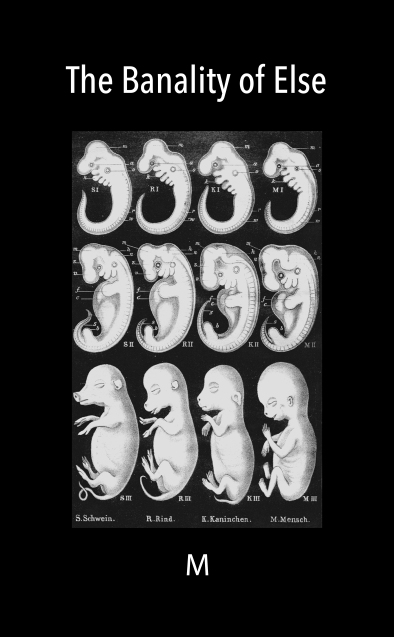
M., The Banality of Else. gnOme. 2014.
The Banality of Else is a surreal/ fragmentary/ discursive series of texts written in the disembodied vocal style. Apocalyptic in atmosphere, it utilizes corporeal imagery to illustrate its conceptual points. The book deals in the first instance with the conflict between the ‘else’, (the ‘other than’), perceived as a reflexive banality, and the ‘none’ (nothingness/ purity); ‘else’ as the ‘in-dreaming of the self to follow’, the ‘deflect of self-reflect’. The second section, ‘Of Dissipating Emblems’, deals with the unquantifiability of silence, and the conflict of words in that context, (‘the stain of emptily’), also with words and their response to the ‘nothing’. ‘Of the Dead Airs’ deals with finality and the incapacity/ obliteration of words before the ‘naught’, the ‘fade to absent traces’. ‘The Redundant Pulse’, the final section of the book, posits that the human experience is now an endgame, (if it ever had any meaning at all), and should not continue any further…

No comments:
Post a Comment
Note: Only a member of this blog may post a comment.